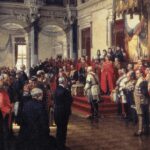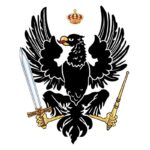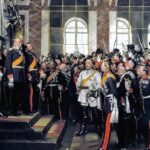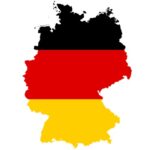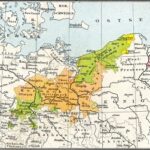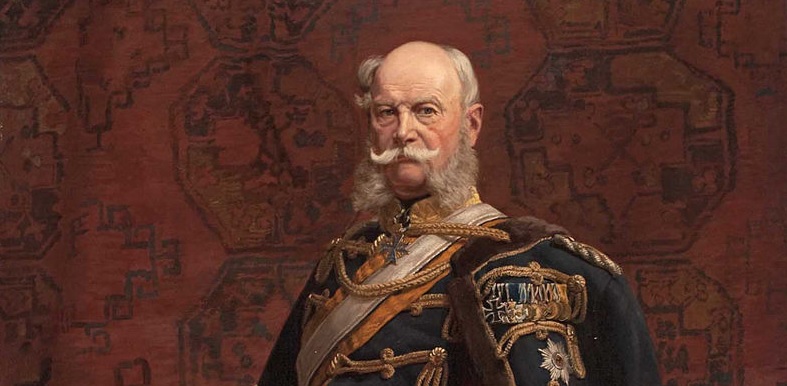
Kaiser Wilhelm I might not be as flashy as Bismarck or as controversial as his grandson Wilhelm II, but without him, there would be no German Empire. As the first Emperor of a united Germany, Wilhelm I played a central—if often understated—role in one of Europe’s most transformative chapters.
Who was the man behind the title, and how did he help guide the rise of modern Germany? Let’s explore his life, reign, and legacy.
A Prince of Prussia: Early Life and Military Roots
Born in 1797 in Berlin, Wilhelm was the second son of King Frederick William III of Prussia. As a young man, he served in the army and fought against Napoleon, setting the stage for a lifelong connection to the military.
Though not initially destined for the throne, Wilhelm inherited it after the death of his childless elder brother, King Frederick William IV, in 1861.
From the beginning, Wilhelm saw himself as a servant of the state, guided by duty, loyalty, and tradition.
The King Who Made a Chancellor
One of Wilhelm’s greatest decisions was appointing Otto von Bismarck as his Minister President of Prussia in 1862. At times uneasy with Bismarck’s aggressive Realpolitik, Wilhelm nevertheless supported him through a series of wars that would lead to unification:
- The Danish War (1864)
- The Austro-Prussian War (1866)
- The Franco-Prussian War (1870–71)
Bismarck handled the politics and diplomacy; Wilhelm led as a stabilizing figure and national symbol. Their partnership, though occasionally strained, was one of the most effective in modern history.
The Proclamation of the German Empire
On January 18, 1871, in the opulent Hall of Mirrors at Versailles, Wilhelm was proclaimed Kaiser (Emperor) of the German Empire. It was a historic moment: for the first time, the German-speaking states were united under one crown.
Wilhelm was hesitant about the title “Emperor,” preferring the simpler role of King of Prussia. But he accepted the crown as a gesture of national unity. He left the heavy lifting of governance to Bismarck, focusing instead on symbolic leadership and military affairs.
A Reign of Balance and Conservatism
As Kaiser, Wilhelm I ruled from 1871 until his death in 1888. During this period, Germany transformed into an industrial powerhouse.
Key aspects of his reign:
- Supported Bismarck’s policies of Realpolitik and alliance-building
- Oversaw the Kulturkampf, a failed attempt to reduce Catholic Church influence
- Endorsed social reforms (pensions, health insurance) to counter socialist movements
Though deeply conservative, Wilhelm showed flexibility when it counted. He believed in monarchy but tolerated change—so long as order was maintained.
Relationship with Bismarck: Trust, Tension, Triumph
The Kaiser and his Chancellor were a study in contrasts:
- Wilhelm: traditional, modest, military-minded
- Bismarck: strategic, manipulative, fiercely ambitious
At times, Wilhelm threatened to resign over Bismarck’s domineering tactics. But ultimately, he respected Bismarck’s brilliance and allowed him room to govern. Their collaboration brought stability and growth to the new German state.
7 Surprising Facts About Kaiser Wilhelm I
- He lived through Napoleon and Bismarck—witnessing the fall of empires and rise of nations.
- He narrowly survived an assassination attempt in 1878, thanks to a metal military helmet.
- He was the oldest emperor in Europe when crowned at age 73.
- He had strong religious faith, believing monarchy was divinely ordained.
- He disliked pomp, preferring simple military uniforms to royal extravagance.
- He ruled during Germany’s first welfare reforms, which he cautiously supported.
- His funeral sparked massive public mourning, showing his popularity across classes.
Legacy: The Founding Father of Imperial Germany
Wilhelm I died in 1888, marking the end of an era. His son Frederick III reigned for just 99 days before dying of cancer. His grandson, Wilhelm II, would go on to lead Germany into World War I.
Though not a revolutionary, Wilhelm I was the right man for the moment: calm, conservative, and committed to unity. He lent legitimacy to Bismarck’s bold plans and embodied the continuity between old Prussia and the new empire.
Why Wilhelm I Still Matters Today
Wilhelm I represents a model of leadership based on duty and moderation. In an age of upheaval, he helped create and preserve one of Europe’s most powerful states. His era laid the foundations for modern German institutions, from civil service to federalism.
Understanding Wilhelm I is key to understanding how Germany transitioned from fragmented states to unified empire—and how leadership style can shape national destiny.
Kaiser Wilhelm I didn’t seek the spotlight, but history cast it on him. His reign was defined not by revolution, but by evolution—a steady hand in turbulent times.
Germany’s first emperor remains a symbol of unity, stability, and quiet strength.
Related Articles:
